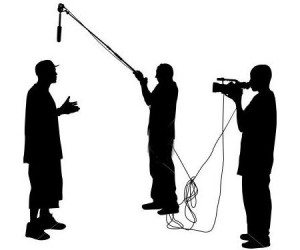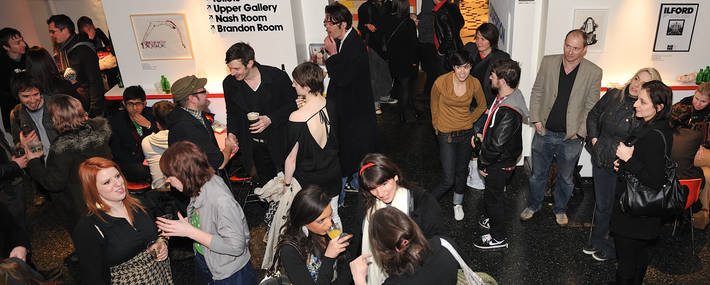The art of networking in the world of film
Just like most jobs, breaking into the film industry is hard competitive and ruthless. Employers emphasise the important of prior experience, whilst finding relevant work experience is becoming increasingly difficult. I personally sent hundreds of emails and made countless phone calls, which rarely produced success. However, what I have discovered through my work experience is the value of networking – knowing one right person can make all the difference.
Over the summer of 2012, I worked in the production of various films and music videos, mainly as a runner, art assistant or art director. Having never seen the workings of a film from the inside-out and knowing nothing about what an art directing role even entailed, the experience was both thrilling and nerve-wracking. You could work for three days straight on a schedule of 18 hours a day, but the end result makes all your efforts worth it.
 My time working in film really opened my eyes to its intricacies, and deepened my knowledge and love for the industry. However, on of the most valuable skills I learnt was not lighting or choosing the right lens, it was the art of networking. Film employers (usually the producer) will often hire people whom they know, as it will make creating the film far easier if everyone can work well together.
My time working in film really opened my eyes to its intricacies, and deepened my knowledge and love for the industry. However, on of the most valuable skills I learnt was not lighting or choosing the right lens, it was the art of networking. Film employers (usually the producer) will often hire people whom they know, as it will make creating the film far easier if everyone can work well together.
Nevertheless, do not fear, if you do not have the right connections now. When I began it was safe to say the only person within my networking circle was probably my mum, and unfortunately she was not making a film anytime soon. The key is to become active. There are no rules concerning location, but I found that the best places are media related such as art exhibitions and film festivals, especially if they are slightly less well known or obscure. Although, you would be surprised with whom you may sit next to on the train or bump into at a bar.
Through experience and research I have found that these are key components in mastering the art of networking:
1. Confidence: When approaching people film industry is hard, competitive and was not lighting or choosing the right lens it be comfortable and confident, as your unease will affect the conversation. Additionally, have an element of self-assurance that you are good enough to talk to these people, despite their age or skill. However, do not confuse self-assurance with arrogance, as no one likes haughtiness.
2. Ask Questions: The knowledge you can gain will be invaluable.
3. Individuality: As your mother used to tell you, “be yourself”. Handing out CVs to people you are networking with is clumsy and can be annoying for both you and them, hence you need to sell yourself without it and be memorable in the process. Thus, ensure you tell them about you, and do not be afraid to have an opinion as it can show enthusiasm.
4. Create A Connection: Although, the conversation should be professional it is important that you build a rapport and do not always restrict yourself to talking about film as you can build a connection through other related topics, which also show a wider interest.
5. Contact: Remember to share contact details and to get in touch. However, avoid pestering. Networking can be easy and more importantly it is fun as it gives you the opportunity to meet new people and gain more of an insight into your industry through professionals. Next time you meet someone, try out these steps so that you become familiar, and hopefully you will have success.


Comments